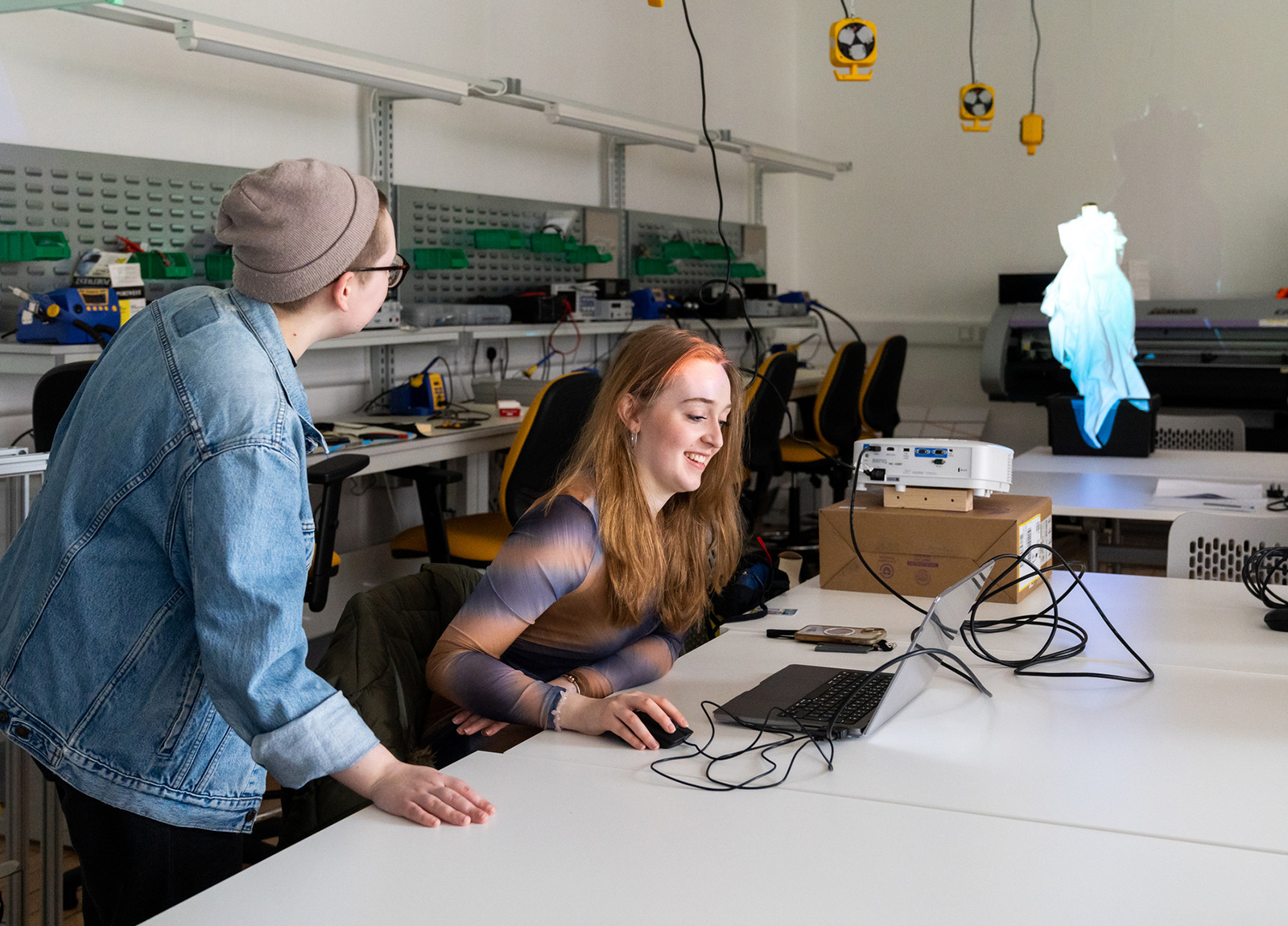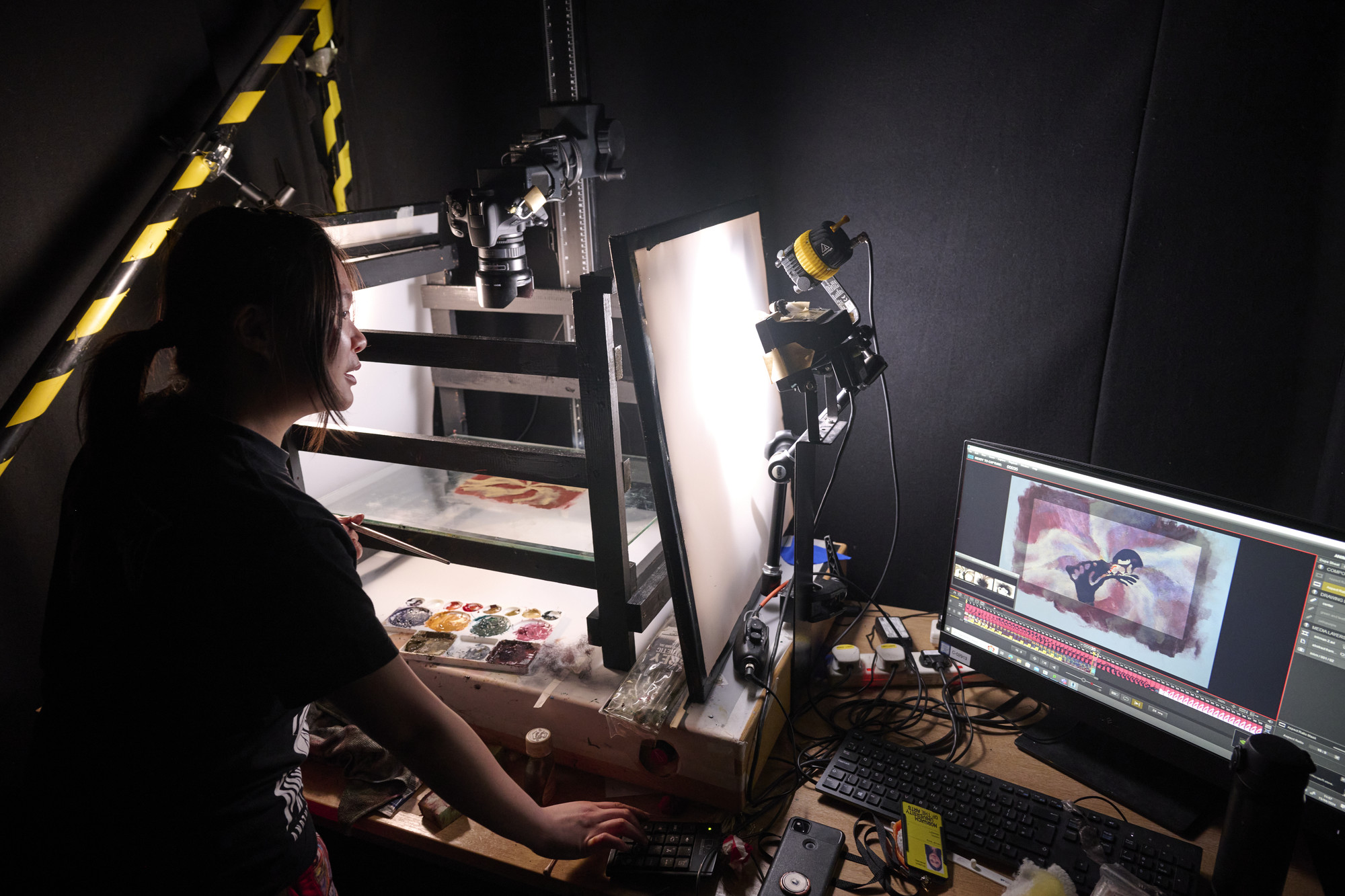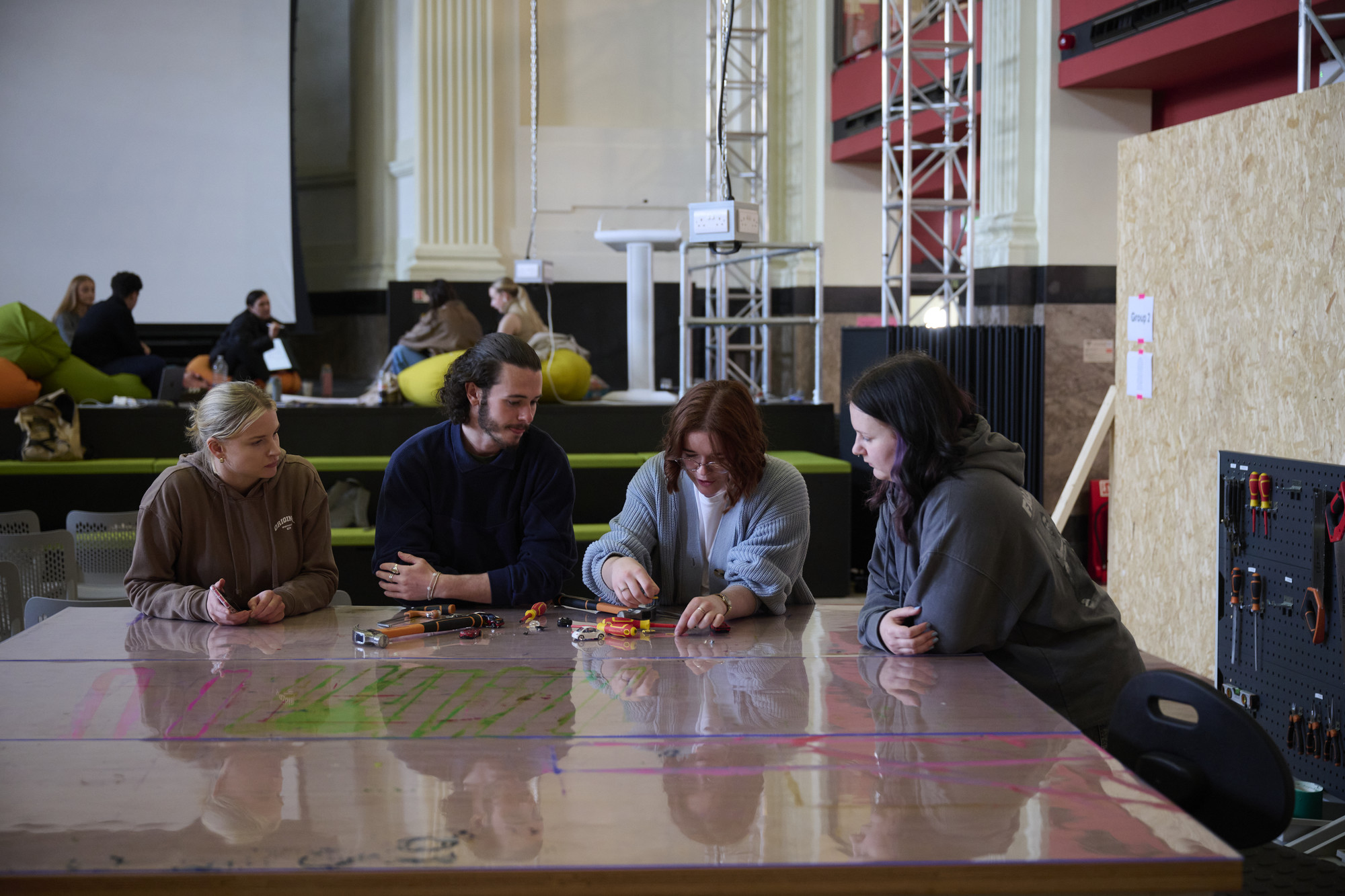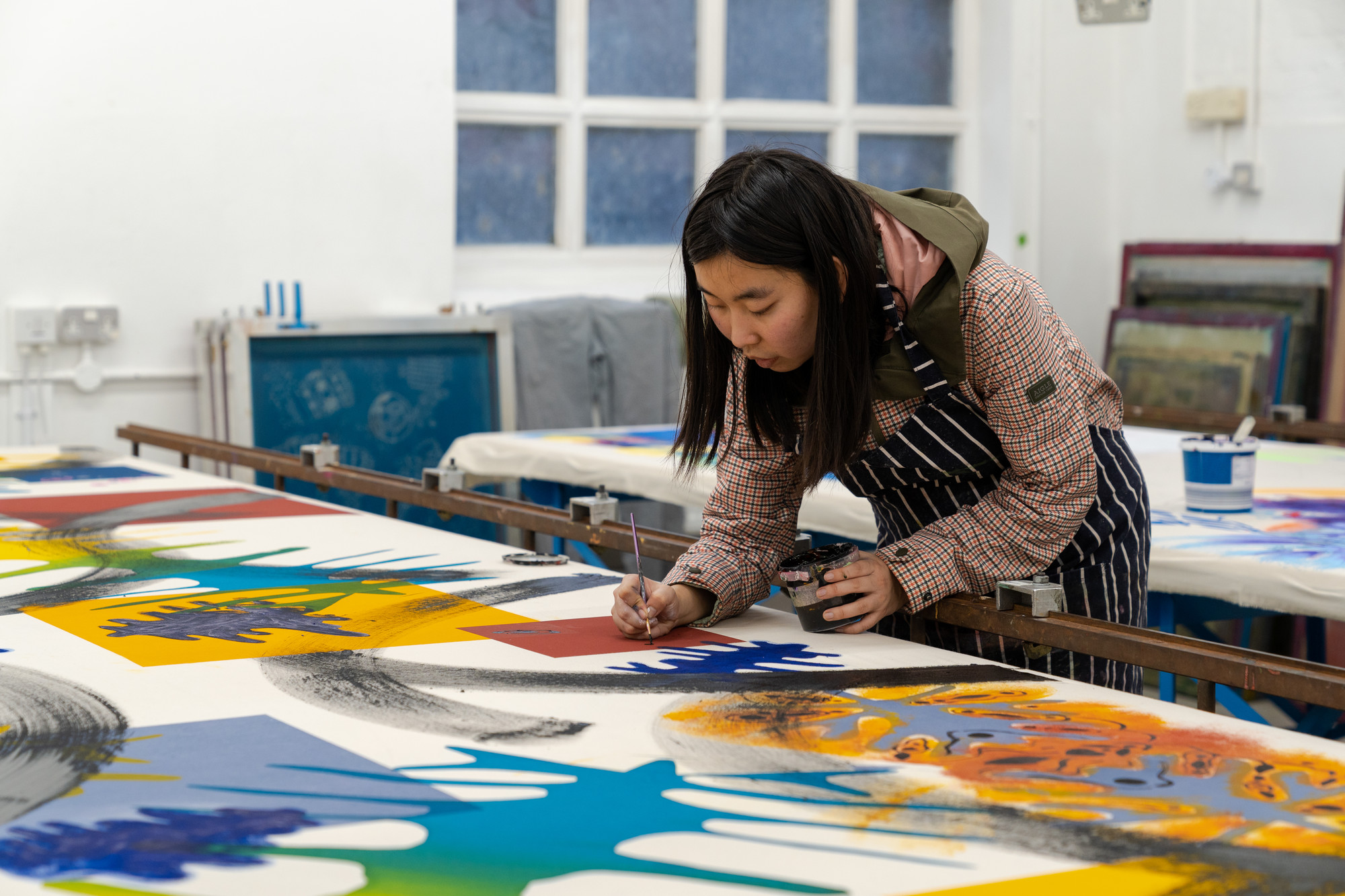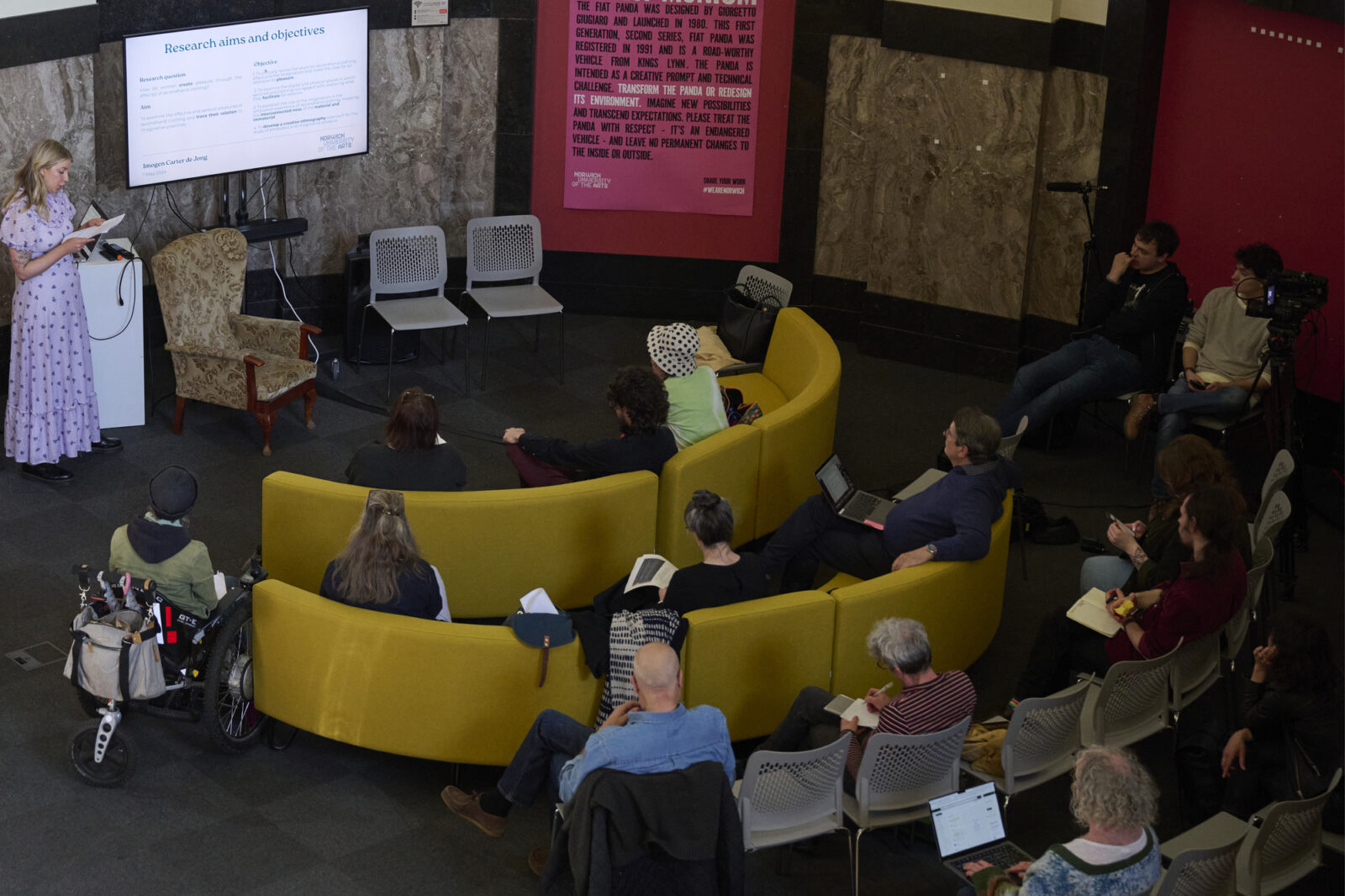What’s the difference between undergraduate and postgraduate study?
Embarking on the journey from undergraduate to postgraduate studies is an exciting and transformative experience, that brings both challenges and opportunities.
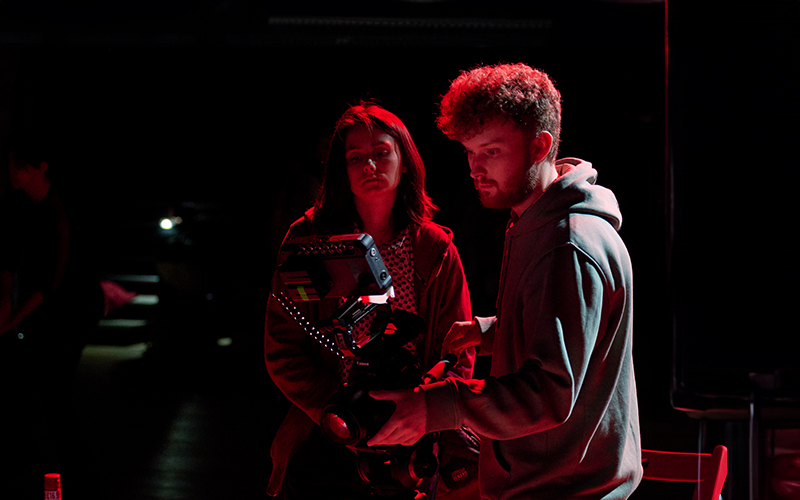
We’ve gathered together some key ways in which postgraduate study differs from undergraduate study, and why continuing your academic journey might be the right choice for you.
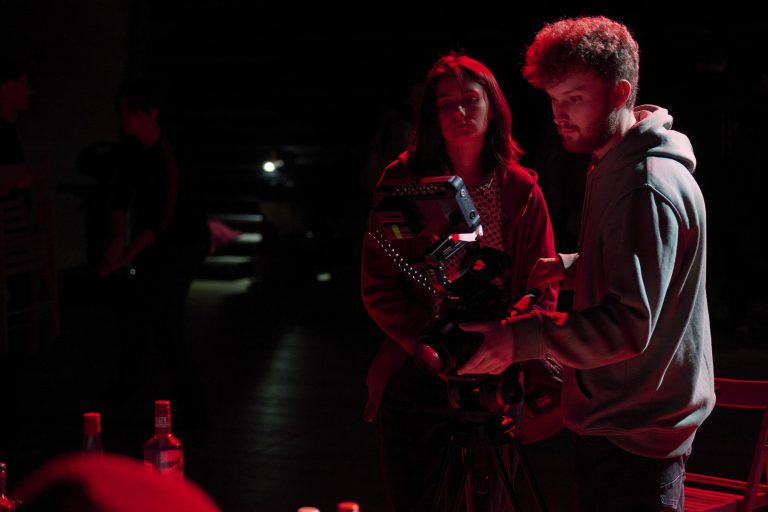
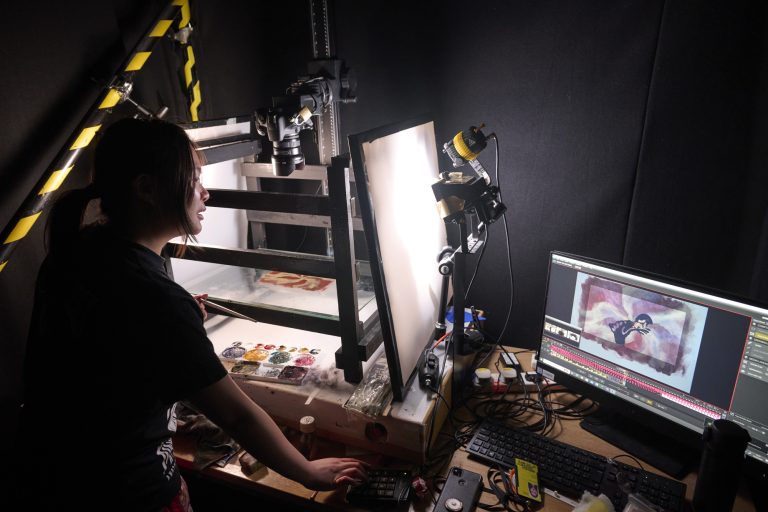
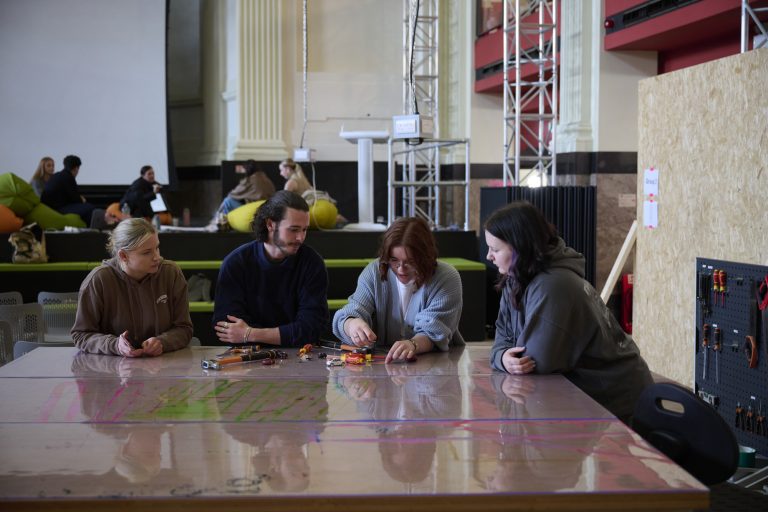
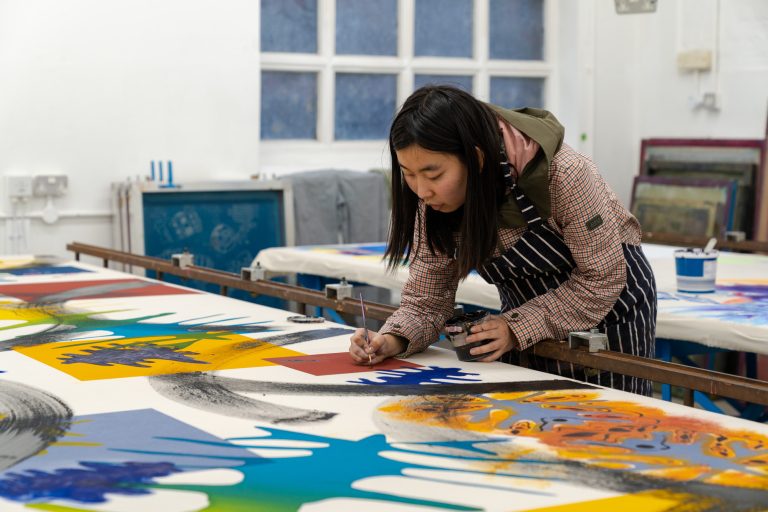

1. Depth and specialisation
One of the key differences between undergraduate and postgraduate study is the level of complexity and sophistication required. While undergraduate courses provide a broad foundation of knowledge in a particular field, postgraduate studies allow you to dig deeper into specific areas of interest and conduct more advanced research. This might allow you to further investigate a topic uncovered in your undergrad course, or maybe master a medium or process which is key to your field.
2. Independent study
Perhaps one of the most immediately clear differences about postgraduate study is the amount of self-directed learning. You’ll have more freedom over your academic pursuits and will be expected to take the initiative in identifying research topics and formulating research methodologies. It can feel different to undergraduate, but it can also open doors to new and exciting discoveries not covered by Bachelor’s courses.
3. Career preparation
One of the huge benefits of postgraduate study is the career preparation and professional development opportunities it can provide. Due to its higher degree of academic rigour and subject specialisation, a postgraduate degree can enhance your qualifications and job prospects in your chosen area. Increasing your skillset, learning how to handle new tools and pieces of software could open doors upon completion of your course. This could lead to further academic opportunities or progression in your chosen field of work.
4. Research focus
Compared to undergraduate level, postgraduate study often has a stronger emphasis on research and scholarly inquiry. Pursuing a Master’s will give you the opportunity to engage in research at a deeper level, which could allow your work to have a greater impact in your chosen field. Some students also seek opportunities to publish their research findings in peer-reviewed journals and other publications.5. Critical thinking
Undergraduate study cultivates critical thinking skills, encouraging you to analyse complex issues, evaluate evidence and develop reasoned arguments. At postgraduate level you will be encouraged and supported to push these abilities further, learning to engage with advanced theoretical concepts. Your research should develop into new and unexpected areas as you work with new ideas and develop skills in cutting edge tech and processes. Postgraduate study is an opportunity to take the step from echoing others to contributing your own, original insights to your field.Tags:
- Find more blogs with the tag MA Communication Design
- Find more blogs with the tag MA Curation
- Find more blogs with the tag MA Degree
- Find more blogs with the tag MA Fine Art
- Find more blogs with the tag MA Games
- Find more blogs with the tag MA Moving Image and Sound
- Find more blogs with the tag MA Textile Design
Gallery
Other interviews
-

In conversation with Norwich’s newest lecturers in Marketing and Business Management
-

Dear future international students – Diya Vaya, BA (Hons) Film and Moving Image Production
-
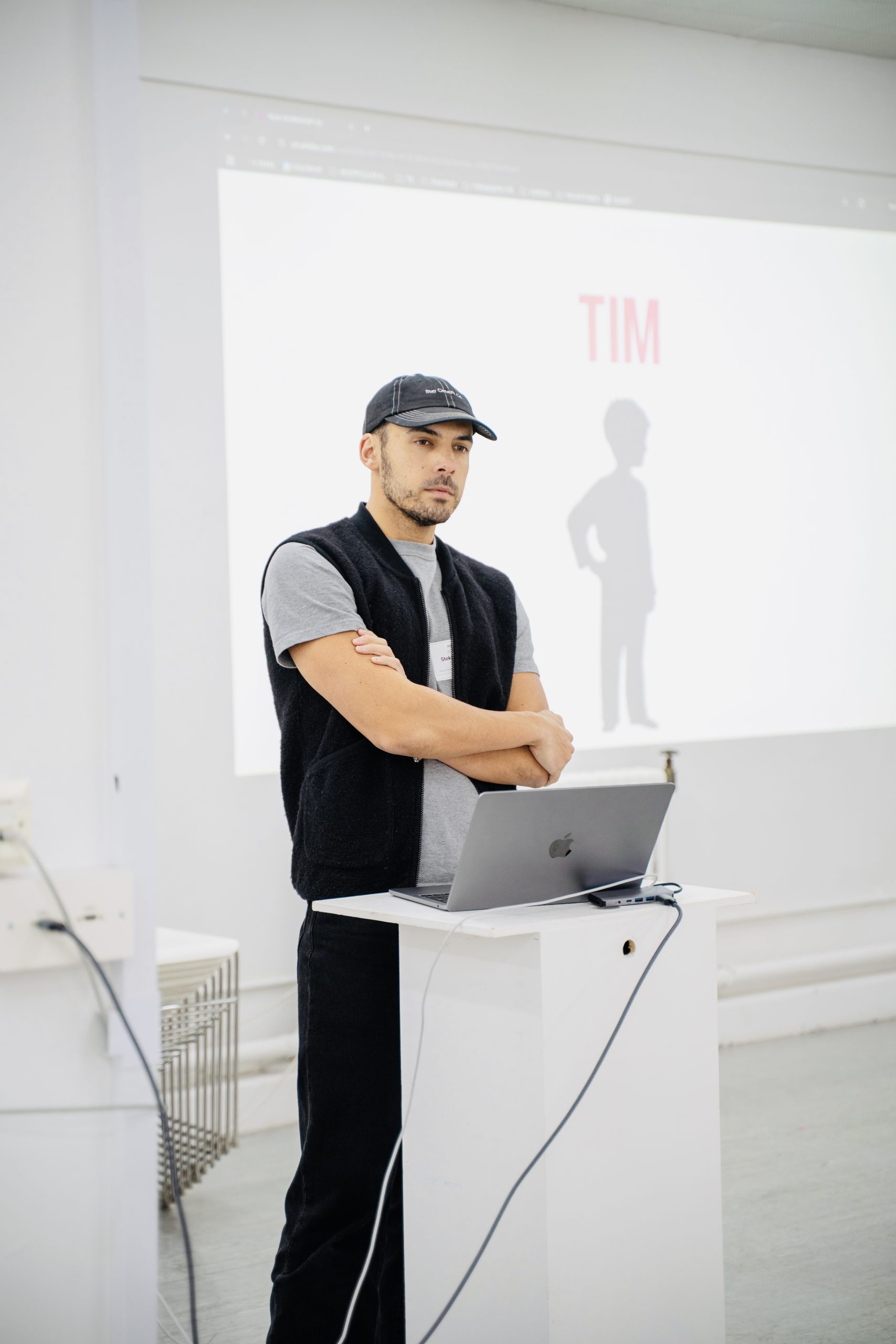
Inside Interchange Week with Stokely Howard of Trendy Grandad
-

Shape Shift Converse Rework: Authentic co-creation of art in mental health settings
-

In conversation with Gabriella Mason, BA (Hons) Illustration
-

In conversation with Cassie Muskett, BA (Hons) Graphic Communication
-

Embracing AI in Textile Design: A journey of creativity and collaboration
-

In conversation with: Alice Lee, BA (Hons) Illustration lecturer
-

In conversation with: Lucien Kelman, BA (Hons) Animation
-
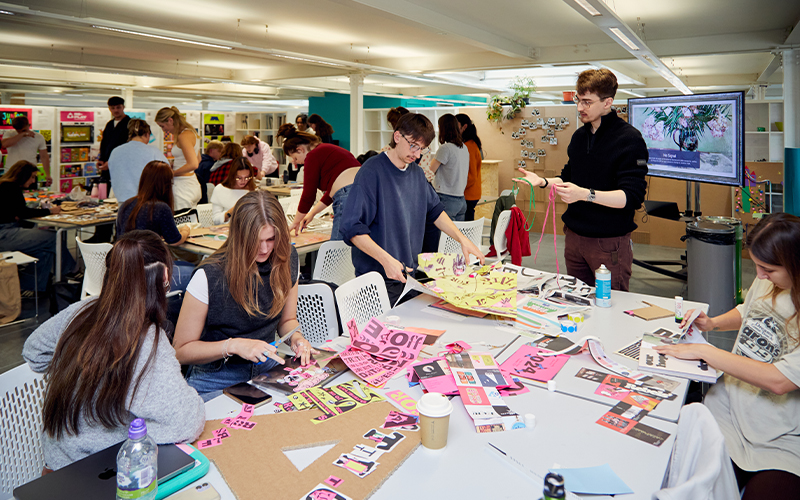
In conversation with: Sam Butler, BA (Hons) Graphic Communication
-
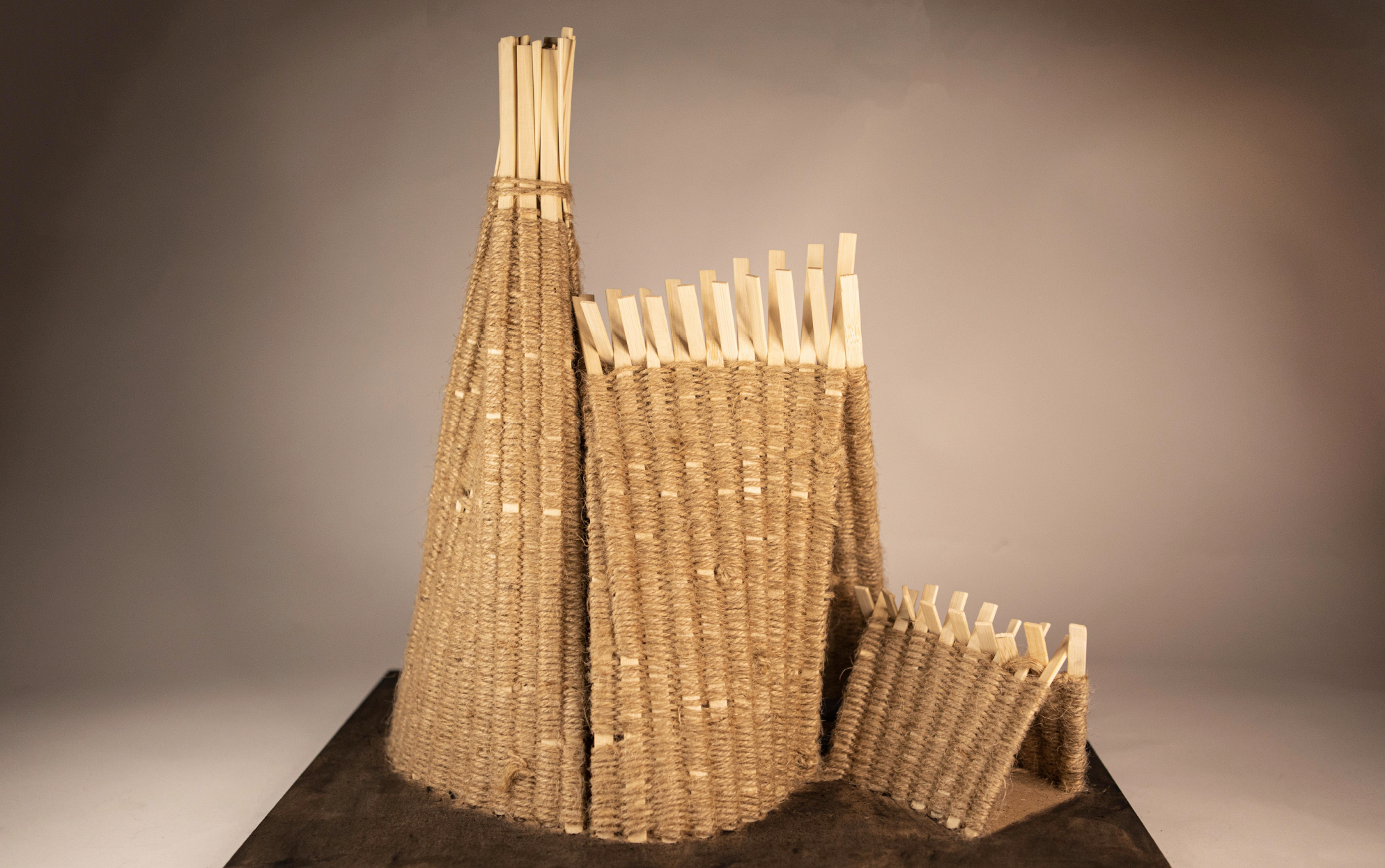
In conversation with: Tracey Lin, BA (Hons) Architecture student
-
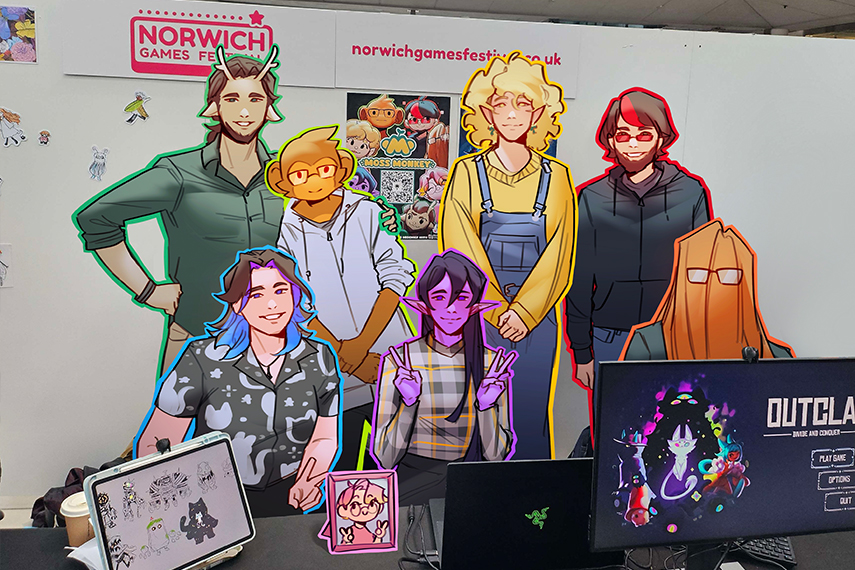
In conversation with: Iz Head, BA (Hons) Games Art and Design
